According to a survey commissioned by CompHealth, doctors work longer than the average American, intending to retire at age 68.1 Eventually, most physicians do decide to pull the plug on their careers. Questions about when to retire and what happens next are important to answer.
“The primary question to ask yourself is, ‘Do I still love what I do,’ says Lois Geist, MD, associate dean of faculty affairs and development at Carver College of Medicine, University of Iowa, Iowa City. “If paperwork doesn’t subsume your day, and you feel you can spend the amount of time you want with patients, then you probably aren’t ready to leave.”
Ease into Retirement
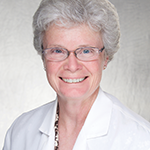 Respondents to the CompHealth survey indicated they did not want to entirely give up work. Fifty-one percent said working was a component of their ideal retirement.
Respondents to the CompHealth survey indicated they did not want to entirely give up work. Fifty-one percent said working was a component of their ideal retirement.
One suggestion: Ease into retirement. Stay at your practice, but explore part-time work or covering patients while your colleagues are on vacation. Do something that allows you to keep your hand in, but gives you more freedom to do things you haven’t had the time to do before.
“In our research with orthopedic surgeons in 1999 and Indiana University alumni in 2003, the main problems that surfaced were loss of role and social engagement,” says Hugh C. Hendrie, MB, ChB, DSc, Albert Stone Professor of Psychiatry Emeritus at the Indiana University School of Medicine. “Do you have a substitute available for being a doctor?”2,3
Locum Tenens an Option
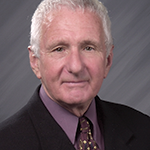 Some take the path chosen by Eric Matteson, MD, MPH, when he retired from the Mayo Clinic in April 2018. “Not wanting to suffer disenchantment from an abrupt end to working life, and at the same time in fulfillment of my interests in international medicine, I took the opportunity to work in New Zealand as a locum tenens,” he says. “Working fewer hours, I am also able to work with the ornithology society here.”
Some take the path chosen by Eric Matteson, MD, MPH, when he retired from the Mayo Clinic in April 2018. “Not wanting to suffer disenchantment from an abrupt end to working life, and at the same time in fulfillment of my interests in international medicine, I took the opportunity to work in New Zealand as a locum tenens,” he says. “Working fewer hours, I am also able to work with the ornithology society here.”
Often, time commitments are less onerous with locum tenens work and allow you to travel at someone else’s expense. Because locum tenens positions are short-term assignments by their nature and by regulation, you have time to do other things you enjoy—and avoid such stressors as running an office.
If serving as a locum tenens physician is not the path you want to take but you still want to remain involved in medicine, become involved in your local, state or national specialty society. Volunteer positions are available in many organizations. Programs to mentor young physicians offer another way to stay involved on a part-time basis.
“You should know you are retiring to something, not only retiring from medicine,” says Dr. Matteson. “To be able to do that, you need to have interests developed before retiring.”
Options Are Varied
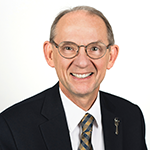 The options are as varied as the individual heading into retirement. Some pursue interests they haven’t had time to before. Dr. Matteson will extend his work with the Audubon Society and get certified as a Master Naturalist. Dr. Hendrie mentions a physician he knew who became a long-haul trucker.
The options are as varied as the individual heading into retirement. Some pursue interests they haven’t had time to before. Dr. Matteson will extend his work with the Audubon Society and get certified as a Master Naturalist. Dr. Hendrie mentions a physician he knew who became a long-haul trucker.
“Some may join or increase participation in service clubs, such as Rotary or Kiwanis,” says Dr. Geist. “Joining an area senior citizen’s center is good for socialization, and they often offer classes leading to new hobbies or interests. There may be a medical component if you teach classes on arthritis or bone density.”
Spending more time with your family can be a perk of retirement. Visiting—and spoiling—your grandchildren is a great thing to retire to.
Sports are another way to use your time. Engaging in golf, bowling or pickle ball will keep you busy and help maintain your health. Sports at centers or clubs provide opportunities for added social engagement.
“Those with fewer outside interests have a harder time,” says Mary Guerriero Austrom, PhD, associate dean of diversity affairs at Indiana University. “They get depressed, and miss their patients and being in charge. They spent their time being a doctor and aren’t comfortable outside that role.”
Spouse/Partner Plans
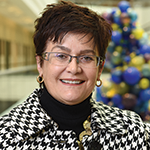 Remember, your spouse or partner may be retiring, as well. If you both work, one may want to leave the workforce while the other doesn’t. Even if the doctor is the only one working full time, the other person in the relationship will sees changes in their life—if only due to the extra time the retiree is around.
Remember, your spouse or partner may be retiring, as well. If you both work, one may want to leave the workforce while the other doesn’t. Even if the doctor is the only one working full time, the other person in the relationship will sees changes in their life—if only due to the extra time the retiree is around.
“Many wives in our studies said it was difficult when the physician stepped back into their lives after not being as involved for 30 years,” says Dr. Austrom. “You must include your spouse or partner in retirement discussions.”
Your Financial Health
The CompHealth survey showed financial stability is key to a satisfying retirement. For most respondents (88%), having enough money was important.
Much of the preparation for this part is done during working years. It’s important to maximize contributions to retirement accounts. Some other financial aspects should also be kept in mind in the lead-up to retirement: “As a general rule, I think it is a bad idea to carry debt into retirement,” says James M. Dahle, MD, FACEP, editor of the White Coat Investor website. “It is cheaper to pay off a $100,000 mortgage than to dedicate $500,000 of your portfolio to producing the income needed to make those payments. It would help cash flow if you wait until after the kids are through college.”
You may need to sell your practice. Take steps to ensure your practice is attractive to a buyer before you try to sell it. (See more on this topic in “Prepare Now to Sell Your Medical Practice”)
There are legal issues to consider. According to Steven M. Harris, Esq., you need to notify your attorney, accountant, insurance agent and financial planner of your plan to retire, not to mention your partners and your patients. Will you keep your license active or change your status to retired?
Other considerations include when to take Social Security (SS) income. For healthy, single people or those with only one income, Dr. Dahle suggests age 70. If there are two incomes in the household, 70 is suggested for the higher earner and a younger age for the lower. You may want to consider a single premium immediate annuity to cover fixed expenses your SS and pension won’t.
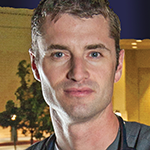 The rule of thumb is that a well-designed portfolio provides a safe, yearly withdrawal rate of 4% of its initial value, adjusted upward yearly for inflation, for at least 30 years of retirement. Bear in mind the 4% figure includes taxes and fees.
The rule of thumb is that a well-designed portfolio provides a safe, yearly withdrawal rate of 4% of its initial value, adjusted upward yearly for inflation, for at least 30 years of retirement. Bear in mind the 4% figure includes taxes and fees.
“You’ll need to adjust as you go to account for the ups and downs,” says Dr. Dahle. “If the first five years have particularly bad returns, you’ll need to adjust spending downward. If they are great, you can probably take more out.”
You may want to work with a financial planner or similar professional. This will help you understand your position, how to maintain it and what to monitor going forward.
Evolutionary Process
Things will change as your health, family needs and interests do during your retirement years. This is as much of an evolutionary process as your career.
“From my own experiences, [I think] you need to take your time and study your options to see which ones are working and which ones aren’t,” says Dr. Hendrie. “My retired friends, both physician and otherwise, say it takes up to a year to adapt to new circumstances. You have more freedom [when you’re retired] in a way, but don’t think that leaving your job is going to solve everything. Successful retirement remains a process.”
Kurt Ullman is a freelance writer based in Indiana.
References
- Physician views on retirement. CompHealth. 2017 Jul.
- Ritter MA, Austrom MG, Zhou H, Hendrie HC. Retirement from orthopaedic surgery. J Bone Joint Surg Am. 1999 Mar;81(3):414–418.
- Guerriero Austrom M, Perkins AJ, Damush TM, Hendrie HC. Predictors of life satisfaction in retired physicians and spouses. Soc Psychiatry Psychiatr Epidemiol. 2003 Mar;38(3):134–141

